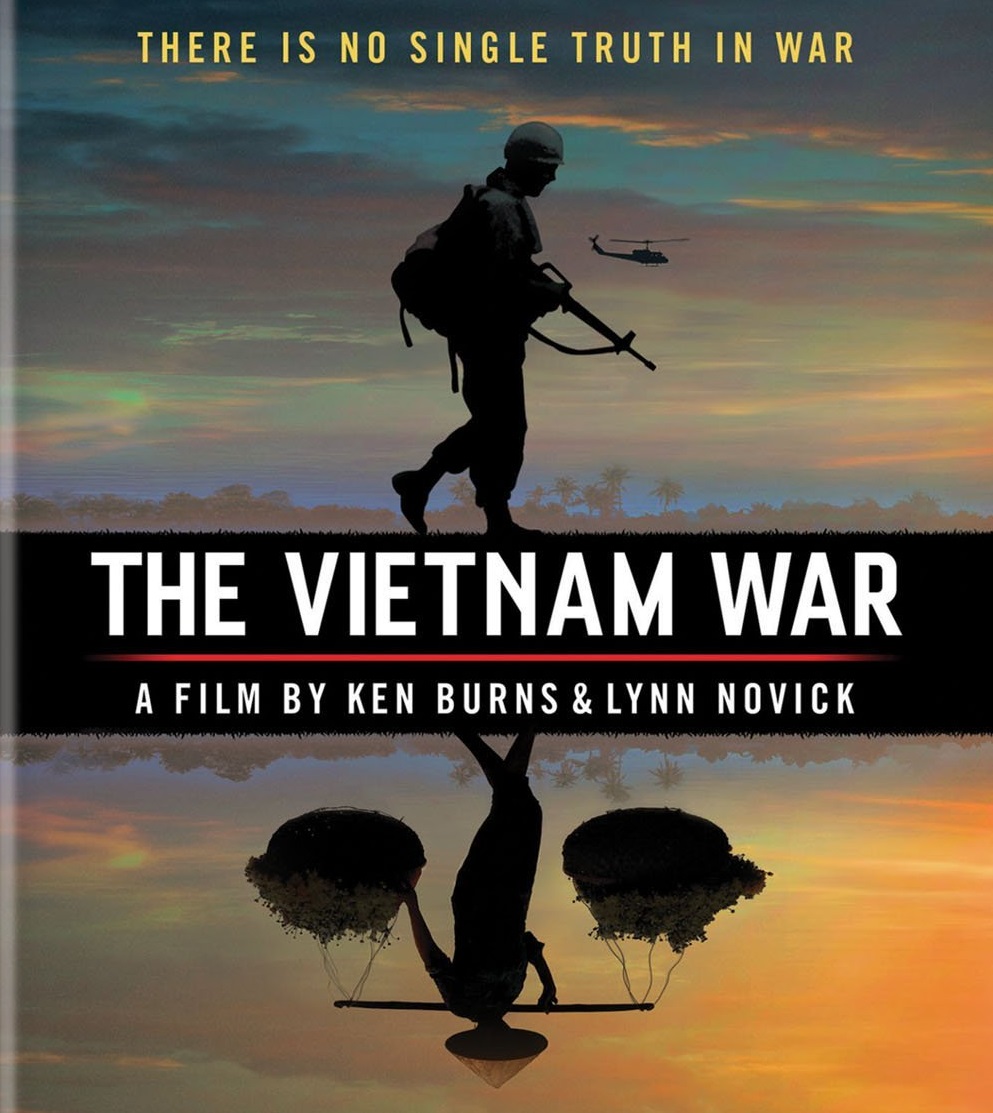Ken Burns’ Vietnam series turned left
By Blaine Taylor
For MarylandReporter.com
The concluding half of filmmakers Ken Burns and Lynn Novick’s epic and epochal “The Vietnam War” series on PBS-MPT for the past two weeks veered leftward, siding with the Communist winners and the anti-war crowd.
Beyond that subjective assertion, I’m not going to describe what either you already saw yourselves to those who did watch it, or who may do so in coming years, as I strongly urge that you do.
My feeling is that the two filmmakers decided to tilt the series toward those viewers under 50, writing off as lost causes—either pro or con—America’s involvement in the war by those like me who are a generation older.
Thus, the North Vietnamese veterans were uniformly portrayed as valiant freedom fighters who won, American veterans depicted as having turned against their own war, and U.S. anti-war movement members, draft-dodgers, and those who left our country also being “right.”
Those of us who fought it as a war worth waging were “wrong.”
Our French predecessors
I would rather focus on our predecessors the French, who first conquered Indochina including Vietnam, starting in 1858, during the reign of Bonaparte Emperor Napoleon III.
Chief among these conquerors were the men of many nationalities of the famed French Foreign Legion, they being defeated in the end over a century later at the North Vietnamese Army’s signal victory at the Battle of Dien Bien Phu in 1954.
Ironically — after the hot desert sands of Algeria and Morocco — the Legion during 1858-85 came to see the lush scenery of Tonkin in North Vietnam especially as a paradise on earth, the region most desired for service by both officers and men.
I never saw South Vietnam that way, but each to his own.
The final struggles resulted in the fall of Indochina to the French began in 1885 with pitched land battles, bombardments from the Navy, and sea-borne amphibious landings.
The local inhabitants were beaten down to pave the way for what the colonizers arrogantly proclaimed as Imperial France’s “civilizing mission” that, somehow, included periodically slaughtering the resistant populace.
Hazards for unwary foreigners
There were hazards for the unwary foreigners, however, with sleepy sentries being eaten by hungry tigers, and heavily fortified camps with blockhouses coming under constant attack by a people that never stopped resisting altogether.
Several later top French commanders of the First World War — such as the general who saved Paris from the Germans in 1914 — saw early and repeated colonial service in what was called Annam by its people. The foreigners tried to remake the capital of Saigon over into the Paris of the Orient, but riding down its streets less than a century later, I saw little of the supposed French influence, alas.
The French colonial administration established a puppet emperor with few powers, all propped up by the bayonets of the Legion.
And so on it went in Vietnam — the “Heaven of the Legionnaire” — until the arrival of the Imperial Japanese Army in 1940, after which the two foreign armies jointly ruled Indochina until March 1945, when the French found themselves interned at last as POWs.
After the Japanese surrendered to the British in September 1945, the latter white fellow colonialists released and rearmed the imprisoned French and other soldiery, the latter stamping out independence movements within a week of their declarations at both Hanoi in the North and Saigon in the South.
Another war for nationalist independence by Vietnamese Communists resumed, the Reds winning nine years later.
In essence, the U.S. took over where the French left off, was stalemated likewise, and there it was. In time, I predict all Communist states will be overthrown by their own peoples.
Blaine Taylor, a Vietnam War decorated combat veteran and international biographer-historian, will be continuing his written histories of the period via an on-going series of biographies of the various Presidential Administrations that waged the wars during 1945-75 and afterwards.
Suggested Reading:
“At the Edge of the World: The Heroic Century of the French Foreign Legion” by Jean-Vincent Blanchard, New York: The Bloomsbury Press, 2017.

MarylandReporter.com is a daily news website produced by journalists committed to making state government as open, transparent, accountable and responsive as possible – in deed, not just in promise. We believe the people who pay for this government are entitled to have their money spent in an efficient and effective way, and that they are entitled to keep as much of their hard-earned dollars as they possibly can.

